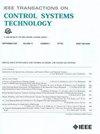基于残差自适应调制函数回归量的不确定管网泄漏大小解耦估计与定位
IF 3.9
2区 计算机科学
Q1 AUTOMATION & CONTROL SYSTEMS
引用次数: 0
摘要
大多数用于检测、估计和定位供水网络泄漏的解决方案依赖于复杂的卡尔曼滤波器(bkf)或先进的独立卡尔曼滤波器(KF)算法来解释网络模型的不确定性,这需要额外的硬件、大量的校准和维护。本文提出了一种基于带压力-流量边界条件的集总模型的调制函数回归量来检测和定位管网中的单个泄漏。通过基于李雅普诺夫的自适应律对MF回归量进行自适应,降低了集总模型的不确定性。利用实际水网系统(WNS)试验台验证了所提回归量的有效性。首先,进行了一个实验阶段,以确定和分析与测试设置有关的植物模型的不确定性的主要来源。随后,对所提出的泄漏检测、估计和定位算法进行了测试,并与鲁棒自适应无气味卡尔曼滤波(RAUKF)进行了比较,显示出令人满意的结果。本文章由计算机程序翻译,如有差异,请以英文原文为准。
Adaptive Residual-Based Modulating Function Regressor for Decoupled Estimation of Leak Size and Localization in Uncertain Water Network Systems
Most solutions for detecting, estimating, and localizing leaks in water networks rely on complex banks of Kalman filters (BKFs) or advanced stand-alone Kalman filter (KF) algorithms to account for the network’s model uncertainty, requiring extra hardware, extensive calibration, and maintenance. This study proposes a modulating function (MF) regressor based on a lumped model with pressure-flow boundary conditions to detect and localize a single leak in a water network. The uncertainty of the lumped model is reduced by adapting the MF regressor via a Lyapunov-based adaptive law. A real water network system (WNS) test bench was employed to validate the effectiveness of the proposed regressor. Initially, an experimental phase was conducted to identify and analyze the primary sources of uncertainty of the plant models concerning the test setup. Subsequently, the proposed leak detection, estimation, and localization algorithm was tested and compared with the robust adaptive unscented Kalman Filter (RAUKF), showing promising results.
求助全文
通过发布文献求助,成功后即可免费获取论文全文。
去求助
来源期刊

IEEE Transactions on Control Systems Technology
工程技术-工程:电子与电气
CiteScore
10.70
自引率
2.10%
发文量
218
审稿时长
6.7 months
期刊介绍:
The IEEE Transactions on Control Systems Technology publishes high quality technical papers on technological advances in control engineering. The word technology is from the Greek technologia. The modern meaning is a scientific method to achieve a practical purpose. Control Systems Technology includes all aspects of control engineering needed to implement practical control systems, from analysis and design, through simulation and hardware. A primary purpose of the IEEE Transactions on Control Systems Technology is to have an archival publication which will bridge the gap between theory and practice. Papers are published in the IEEE Transactions on Control System Technology which disclose significant new knowledge, exploratory developments, or practical applications in all aspects of technology needed to implement control systems, from analysis and design through simulation, and hardware.
 求助内容:
求助内容: 应助结果提醒方式:
应助结果提醒方式:


